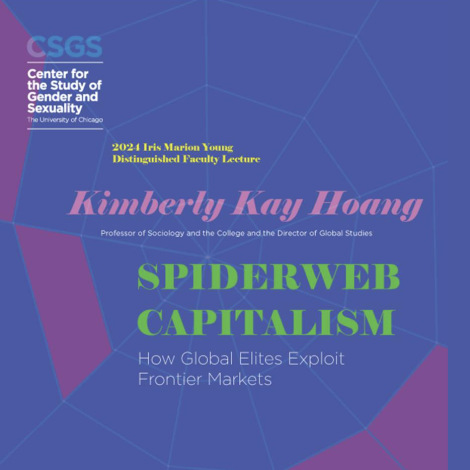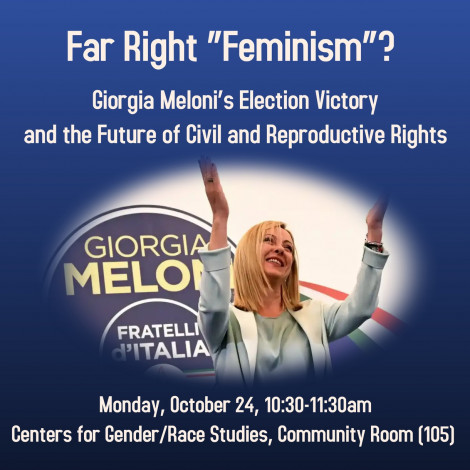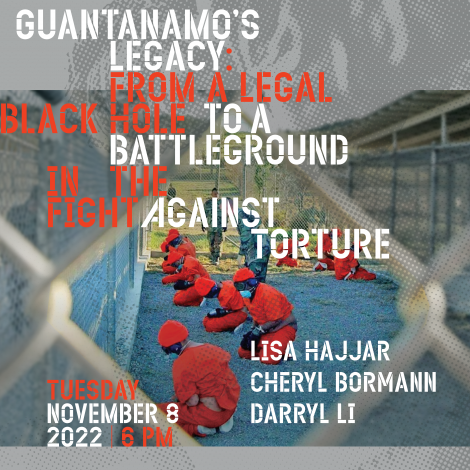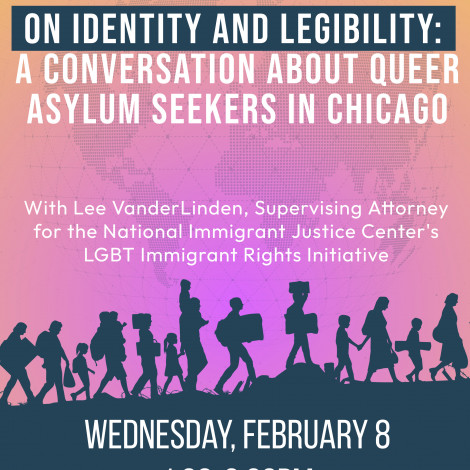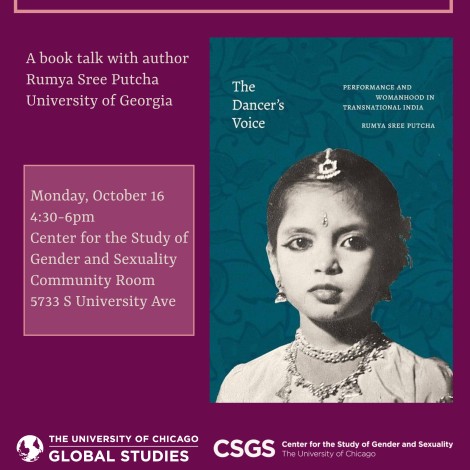January 25 - Kimberly Hoang, Spiderweb Capitalism
January 25, 5pm-6:30pm, Center for the Study of Gender and Sexuality Community Room
Please join us for the upcoming Iris Marion Young Distinguished Faculty Lecture, an annual event at the Center for the Study of Gender and Sexuality honoring a UChicago faculty member and featuring their exemplary work. Kimberly Kay Hoang (Sociology, Director of Global Studies) will speak on her latest book, Spiderweb Capitalism.
Past Events
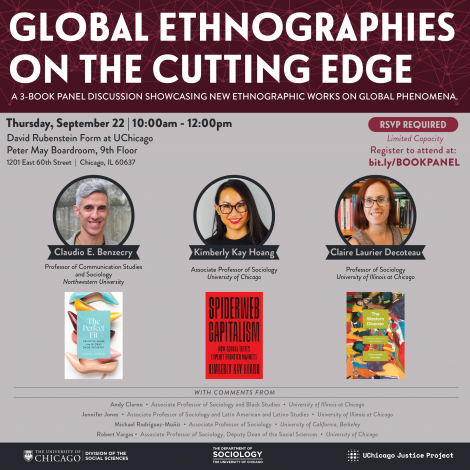
September 22 - Global Ethnographies on the Cutting Edge
An exciting panel on new ethnographies written by three local sociologists:
Claudio E. Benzecry, Professor of Communication Studies and Sociology, Northwestern University
Kimberly Kay Hoang, Associate Professor of Sociology, University of Chicago
Claire Laurier Decoteau, Professor of Sociology, University of Illinois at Chicago

October 6 - Global Studies Open House
4:30pm-5:30pm, Classics Quad (outside of Gates-Blake Hall)
Global Studies Fall Open House!
An opportunity to see friends you haven't seen since last Spring, chat with Global Studies faculty, hear about the major and--most importantly--enjoy some cupcakes!
October 24 - Far Right "Feminism"? Giorgia Meloni’s Election Victory and the Future of Civil and Reproductive Rights
This talk addressed the results of the recent Italian elections and their meaning in the context of global attacks on gender and reproductive rights. The victory of Giorgia Meloni—a far-right politician and the first woman to be elected as Prime Minister in Italy—has brought debates over feminism, women’s rights, and civil rights to the forefront of political discourse. How do we understand and contextualize Meloni’s brand of far-right “feminism”? How do we make sense of a political campaign marked on one side by her reliance on her identity as a woman, and on the other by explicit attacks to women’s rights?
A presentation and discussion by Chiara Bottici, Associate Professor of Philosophy and Director of Gender and Sexuality Studies at The New School for Social Research.
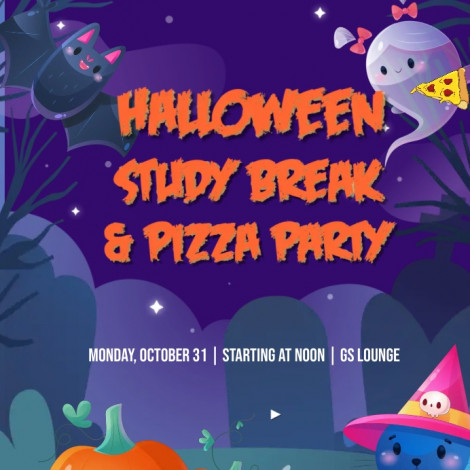
October 31st - Halloween Study Break and Pizza Party
A Halloween Study Break and Pizza Party in the Global Studies Lounge. Since it was spooky season, the event even featured—horror of horrors!—pineapple on pizza.
November 8 - Guantanamo’s Legacy: From a Legal Black Hole to a Battleground in the Fight Against Torture
Lisa Hajjar discussed her new book, The War in Court: Inside the Long Fight against Torture, with a particular focus on the legal battles over the treatment of people detained at Guantanamo.

November 30 - Arancine Cooking Night
A cooking class with deep fried Sicilian treats to warm hearts and souls! Co-organized with the Italian Program.
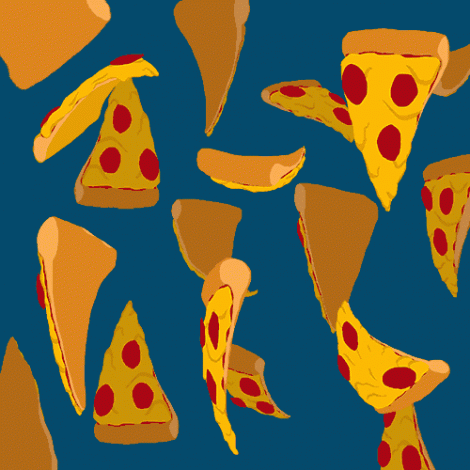
February 1st - Mid-Quarter Study Break
You know what makes midterms better? Free pizza in the Global Studies lounge!
February 8 - On Identity and Legibility: A Conversation about Queer Asylum Seekers in Chicago
An event with Lee VanderLinden, a guest speaker from the National Immigrant Justice Center, who talked about their experience helping queer asylum seekers in Chicago. Lee talked about their trajectory from law school to their current position as a supervising attorney for NIJC’s LGBT Immigrant Rights Initiative, and discussed the challenges queer asylum seekers face in reconciling the rigidity of legal definitions of queerness with the reality of transnational identities that are complex, fluid, and that resist simple processes of translation.

February 21 - Carnevale Cooking Class
A class on how to prepare frittelle and frappe, the typical fried pastries served only for Carnevale or Mardì Gras. This was an opportunity to learn the history and the recipe of frittelle and frappe, and to make, fry, and, best of all, eat them!
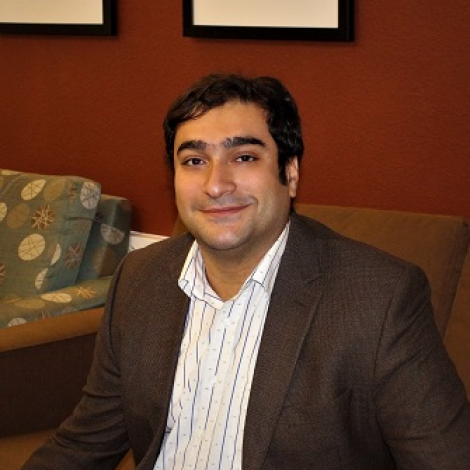
March 29 - Disastrous Politics and Counter Politics of Disaster in Turkey
On February 6th, 2023, two devastating earthquakes struck Turkey, Syria, and Kurdistan, leaving thousands dead and hundreds of thousands without homes. Amidst the rescue efforts in the aftermath of the disaster, people used social media to expose the inadequate support of the Turkish government. The Erdogan government’s initial declaration of national emergency was accompanied by efforts to criminalize independent solidarity initiatives to the disaster, to monopolize relief efforts, and to restrict the use of social media. The unprecedented damage that has unfolded in the aftermath of the earthquakes has been magnified by the region's political and historical repression of marginalized groups. This talk discusses how multiple temporalities and shifting spatial scales in which the earthquakes are experienced deepen the ongoing political and economic crises of authoritarianism in Turkey. It asks about the possibilities and limitations of dissident politics in the background of unfolding political disasters.
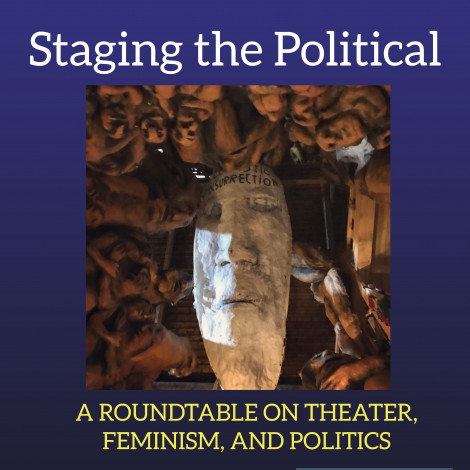
April 24 - Staging the Political: A Roundtable on Theater, Feminism, and Politics
This roundtable takes the intimate and longstanding relationship between theatricality and politics as a point of departure from which to consider how minoritarian worlds are made. We will discuss how gendered and sexual identities are performatively constructed and staged, becoming a crucial element in a politics of performance. Our panelists will discuss the relationship between feminism, theater, and politics, drawing upon examples from their own research as well as their practical experiences with theater in Chicago, France, and India.
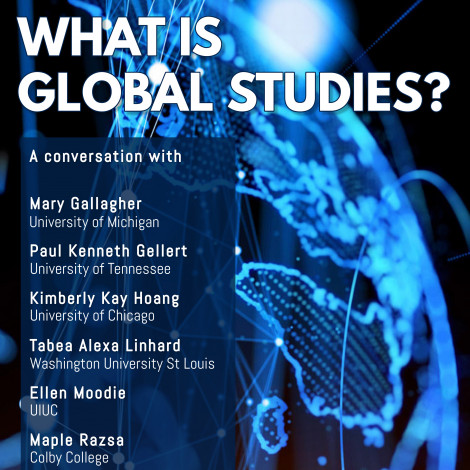
May 5 - What is Global Studies?
An open conversation among scholars who are involved in global studies programs at different universities. They explored the connections between global studies and international studies, international relations, and canonical social science disciplines, and discussed the challenges of working in an interdisciplinary and transdisciplinary field.
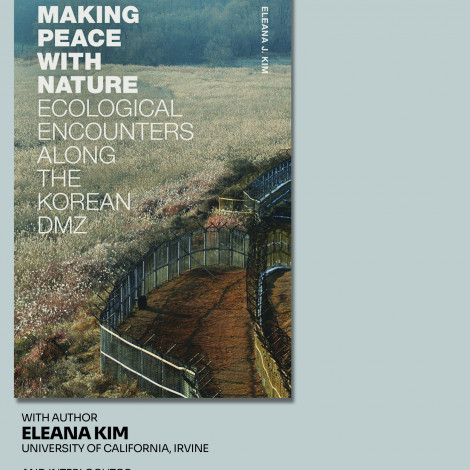
May 9 - Making Peace With Nature: Ecological Encounters Along the Korean DMZ
This book talk discusses Eleana Kim’s recently published ethnography of the ecologies of the South Korean borderlands, in areas adjacent the Korean Demilitarized Zone. Based on fieldwork with ecologists, environmentalists, and residents who live along the border, this book reframes the Korean DMZ and the national division around more-than-human peace. It also argues that militarized ecologies deserve greater attention in the context of climate crisis and the convergence of militarization and privatization at a planetary scale.
October 16 - The Dancer’s Voice: Performance and Womanhood in Transnational India
4:30pm - 6:00pm
Centers for Gender/Race Studies, Community Room (105)
In this book talk, author Rumya Sree Putcha will discuss her recently published book The Dancer’s Voice: Performance and Womanhood in Transnational India. In the book, she theorizes how the Indian classical dancer performs the complex dynamics of transnational Indian womanhood. Putcha argues that the public persona of the Indian dancer has come to represent India in the global imagination—a representation that supports caste hierarchies and Hindu ethnonationalism, as well as white supremacist model minority narratives. Generations of Indian women have been encouraged to embody the archetype of the dancer, popularized through film cultures from the 1930s to the present. Through analyses of films, immigration and marriage laws, histories of caste and race, advertising campaigns, and her own family’s heirlooms, photographs, and memories, Putcha reveals how women’s citizenship is based on separating their voices from their bodies. In listening closely to and for the dancer’s voice, she offers a new way to understand the intersections of body, voice, performance, caste, race, gender, and nation.
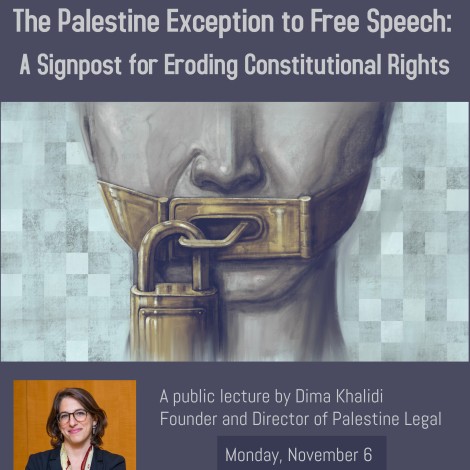
November 6 - The Palestine Exception to Free Speech: A Signpost for Eroding Constitutional Rights
4:30 - 6:00pm
Stuart 101
Amid a nationwide push to curtail the teaching of institutional racism and the dark sides of US history, we can learn important lessons from another subject on which campus communities have
long experienced attacks on free speech and academic freedom: Palestine. In what can only be characterized as a “Palestine Exception to free speech,” academics, students, and others who
speak out for Palestinian rights are routinely falsely accused, investigated, surveilled, harassed, and sometimes suffer severe consequences to their reputations and careers. Right-wing efforts
to dictate what academics and others can and can’t say, teach, or write are proliferating. What is at stake? What can we learn from Palestinians and their allies whose histories, narratives, and experiences are constantly denied, erased, and criminalized, even in academia? How can we ensure that universities and other entities can be bastions of academic freedom and free speech, and not enforcers of corporate, lobbyist, and governmental political litmus tests?
